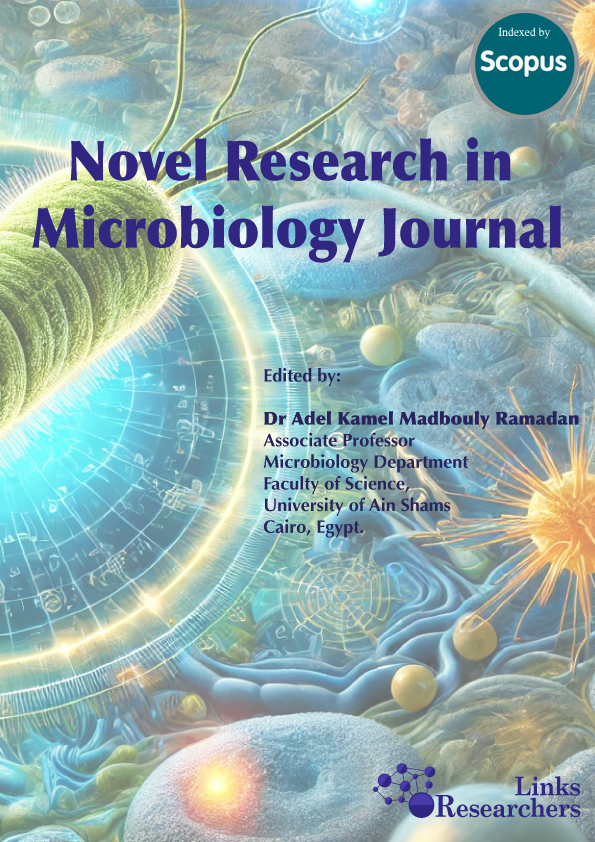The antibacterial activity of nano-encapsulated basil and cinnamon essential oils against certain multidrug-resistant bacteria recovered from infected wounds
Novel Research in Microbiology Journal (2021), 5(6): 1447-1462
The antibacterial activity of nano-encapsulated basil and cinnamon essential oils against certain multidrug-resistant bacteria recovered from infected wounds
Noura El-Kattan1*; Kamilia A.M. Allam2
ABSTRACT
This study was conducted to evaluate the antibacterial activity of nano-encapsulated essential oils of basil (Ocimum basilicum) and cinnamon (Cinnamomum verum) against multidrug-resistant (MDR) bacteria. A total of 115 wound swab samples were collected from patients admitted to Naser Institute, Cairo, Egypt, suffering from wounds discharge; pain, swelling, foul-smelling, delayed and non-healing wound infections. Six genera of bacteria were isolated from the collected swab samples, and then identified using conventional biochemical methods and API 20 kits. Staphylococcus aureus was found to be the most prevalent isolate (26.1 %), following by Pseudomonas aeruginosa (25.2 %), Klebsiella pneumonia (23.5 %), Acinetobacter baumannii (12.2 %), Proteus vulgaris (7.8 %), and the less common isolate of Escherichia coli (5.2 %). Among 14 antibiotics tested in vitro for their susceptibility using the standard disk diffusion assay, results showed that imipenem was the most efficient antibiotic against most of the tested Gram (-) and Gram (+) isolates followed by meropenem. Currently, all the recovered bacterial isolates were MDR. The nano-encapsulated basil oil (NEBO) and nano-encapsulated cinnamon oil (NECO) showed potential antibacterial potentials against all the tested MDR bacteria. Results of testing the antibacterial potential of the NEBO and NECO demonstrated that the encapsulation process protected the oils from oxidation, and consequently enhanced their antibacterial potencies. It could be concluded that the nano-encapsulated essential oils act as promising antibacterial agents against the MDR bacteria.
To share on other social networks, click on any share button. What are these?





